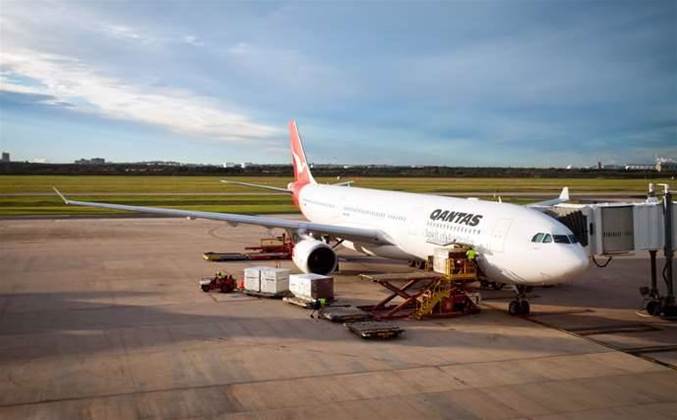Boeing will transition “many” of its commercial aviation analytics software products to run in Microsoft’s Azure cloud.

The two companies today said they had struck an agreement to help airlines “accelerate innovation in areas such as predictive maintenance and flight optimisation”.
Financial terms of the agreement were not disclosed.
“[We’re] teaming up to accelerate the digital transformation of aviation through the use of analytics-based applications, cloud technologies and large-scale integration,” Boeing digital aviation vice president Kevin Crowley said.
Microsoft said the collaboration would see artificial intelligence and IoT play greater roles in the aviation space.
"The digital airline will enable further integration between humans and machines, leveraging artificial intelligence to streamline business operations while enabling airline operators to be more efficient, competitive and attractive to consumers," Microsoft said in a blog post.
Microsoft indicated that services like Cortana Intelligence and Azure IoT Suite could be used to augment Boeing's existing analytics suites.
Boeing’s digital aviation advanced information solutions director Andrew Gendreau said he saw enhancements through AI and IoT as a way to improve the airline industry's thin margins.
“Globally, airlines spend about US$700 billion on operating costs, and there’s about US$700 billion in revenue," he said.
"So airlines are a very competitive business with profitable but narrow margins; leveraging data and analytics not only improves performance and experience, but will give airlines a chance to sustain profitable growth.”
Boeing and its subsidiaries AerData and Jeppesen presently offer analytics tools used by about 300 airlines worldwide.
Some of those airlines include Qantas, which uses optimisation software for crew pairing and scheduling and electronic navigation. Pilots can access the digital navigation charts through an iPad app.
Virgin Australia last year signed on to use Jeppesen crew management tracking tools.



.png&h=140&w=231&c=1&s=0)
.png&h=140&w=231&c=1&s=0)



_page-0001.jpg&w=100&c=1&s=0)

.png&w=120&c=1&s=0) Tech in Gov 2025
Tech in Gov 2025
 Forrester's Technology & Innovation Summit APAC 2025
Forrester's Technology & Innovation Summit APAC 2025
.png&w=120&c=1&s=0) Security Exhibition & Conference 2025
Security Exhibition & Conference 2025
 Integrate Expo 2025
Integrate Expo 2025
 Digital As Usual Cybersecurity Roadshow: Brisbane edition
Digital As Usual Cybersecurity Roadshow: Brisbane edition





.jpg&h=271&w=480&c=1&s=1)





.jpg&h=140&w=231&c=1&s=0)



